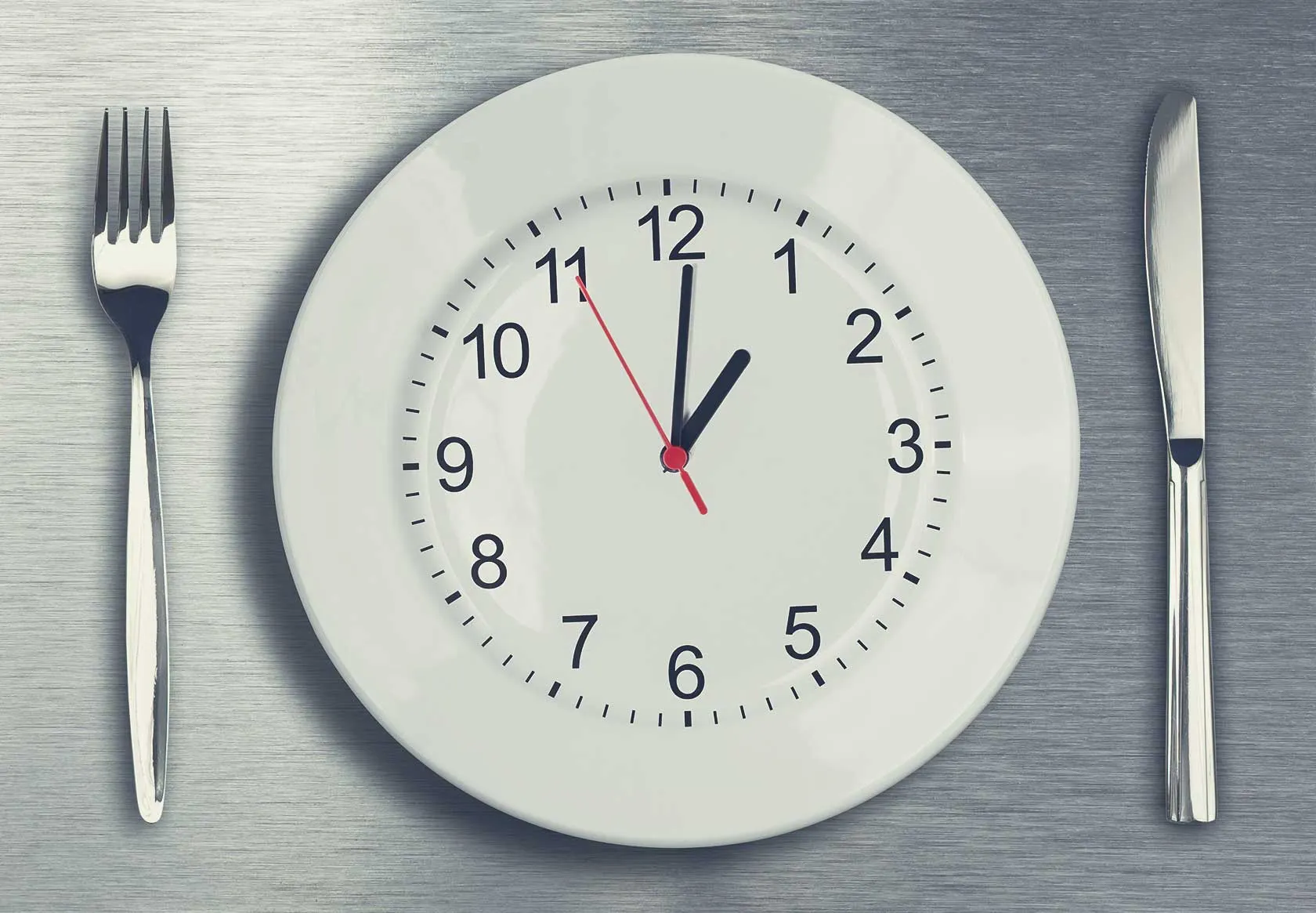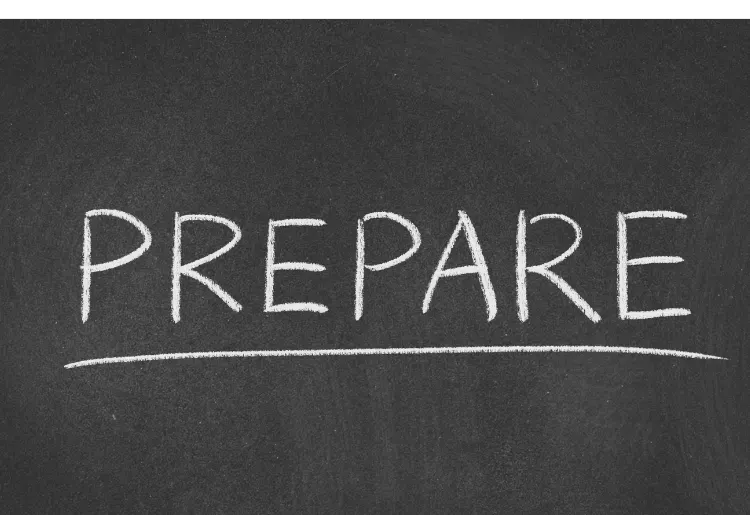Intermittent Fasting for Optimal Men's Health and Wellness

In most cases, you are reading this guide because you are contemplating intermittent fasting in order to achieve your health goals, or you have heard about its effectiveness for weight loss. Other people have raved about the benefits of intermittent fasting and how it has changed their lives. This guide will provide comprehensive answers to all of your questions succinctly and thoroughly. It is imperative that you read this guide in its entirety.
In addition to nutrition experts and medical professionals providing reliable information on intermittent fasting, there are hundreds of blogs and testimonials from people who have tried it. There has also been a substantial amount of research into the benefits of intermittent fasting, with many positive results.
You will not need to read through hundreds of websites or dozens of studies, because this guide summarizes the key facts and tips you need to know. It will assist you in making an informed decision.
The five simple steps discussed here will help you jumpstart your intermittent fasting plan and integrate it quickly into your lifestyle if you have already decided to go for it.
Lastly, you will gain some invaluable tips and recommendations to make your fasting routine more seamless - and to help you maximize your fasting results.
Why Fast Intermittently?
Intermittent fasting is a healthy lifestyle choice for several reasons. The main one is that it isn't a traditional diet.
Whether you're trying to lose weight or just boost your health and vitality, intermittent fasting doesn't involve restricting yourself to specific foods or counting calories. Fasting hours are when you abstain from eating, but eating hours are when you can eat whatever you want – within reason, of course!
Intermittent fasting has gained popularity as a lifestyle habit because of its flexibility.
Is Intermittent Fasting A Fad?
There is no doubt that intermittent fasting is here to stay. The research supports that, with hundreds of people jumping on board as it continues to be discovered and validated.
Various cultures around the world have practiced fasting for centuries, both for health and spiritual reasons. It is only recently that fasting has become known in the West as an effective healthy lifestyle option.
Health experts are increasingly recognizing the benefits of intermittent fasting, so the practice is unlikely to disappear anytime soon.
In spite of warnings about the potential dangers of skipping meals in the past, research findings and real-life examples have caused health experts to rethink their advice.
Several nutrition experts are now recommending intermittent fasting to clients who are simply not able to adhere to traditional diets because they are so convinced of its benefits.
The benefits of intermittent fasting
Studies after studies have proved the powerful and varied benefits of intermittent fasting. Over 75 years of scientific research has conclusively proven the following benefits:
• It improves metabolism.
• It reduces high blood pressure.
• It lowers cholesterol levels.
• It promotes longevity.
• Reduces oxidative stress.
• Mental function is improved by it.
• It reduces the risk of degenerative diseases associated with aging, such as Parkinson's and Alzheimer's.
• It improves insulin sensitivity and can help prevent diabetes.
• It reduces inflammation in the body.
• It reduces the risk of cancer.
Intermittent fasting Is Not For Everyone
Intermittent fasting isn't for everyone. There are some conditions where intermittent fasting can harm your health. You should not fast, or at the very least consult a doctor if:
• You are pregnant.
• You are breastfeeding.
• You are anemic.
• You have a history of eating disorders.
• You have diabetes.
• You have a heart condition.
• You are under 18.
• You are on medications that must be taken during meals.
As more research is carried out, we can expect even more amazing breakthroughs as intermittent fasting continues to demonstrate its benefits.
The traditional disclaimer must be made here: Even though intermittent fasting is not harmful for normal, healthy individuals of both sexes, you should consult your physician before starting this practice.
Five Simple Steps to Success
You can quickly begin your intermittent fasting program by following these five simple steps.
In five basic steps, you can quickly begin your intermittent fasting routine without complicated preparations or expensive supplements or special foods.
Step 1: Define your Goal
It is a common misconception that intermittent fasting is only about losing weight. But this is far from the case. The first step is to identify your personal health goal, which will fall into one of the following categories:
Weight Loss
A person who is trying to lose weight will need to watch what they eat more careful than someone who does not want to lose weight.
To lose weight quickly, you need to keep an eye on what you eat - not strictly restrict calories, but just consume less calorie-rich foods, avoid snacking between meals, and perhaps cut out rich deserts.
As you lose weight, consider adding a workout routine on non-fast days.
Improved Mental Health And Spirituality
There are some people who fast in order to improve their mental strength and to promote spiritual traits such as gratitude, humility, compassion, and learning to accept the simple things in life.
To improve your mental focus and cognitive function, you may want to eat more brain foods or incorporate meditation into your fasting plan.
Overall Health & Well-Being
It's common for people to fast simply for the pleasure of feeling better and more energized. Fasting is generally a great way to cleanse the body and leave you looking and feeling better. You'll notice improved complexions, healthier hair and nails, and a calmer and more balanced digestion as some of the first benefits.
As long as you focus on good nutrition, you can be more flexible with what you eat and can also include physical activity into your daily routine, like walking or cycling.
Step 2: Choose A Fasting Plan
Most commonly practiced and most popular are the following three intermittent fasting plans:
• The 16/8 method
Using this plan, you fast for 16 hours, eating only for 8 hours a day. Veteran fasters recommend starting your fast around 8 p.m. after dinner and breaking it around noon the next day.
This makes perfect sense. You will not get hungry after eating well, and you'll get to sleep for 7 or 8 hours the next day. Breaking your fast at noon or 1 pm on the next day will feel like you're having a late breakfast. Later in the day, you can eat a light meal or snack, and then finish your fasting window with a nutritious dinner.
Two fasting days are recommended in succession with two days when you eat normally to practice this method. As a result, you are free to eat normally for 48 hours after dinner on the second day after dinner. Fasters with more experience often alternate three fasting days with three normal eating days.
During fasting hours, you are allowed to drink fluids like water, unsweetened coffee, tea or herbal tea.

You can begin by fasting for 10 or 12 hours and gradually build up to the full 16 hours if you are a beginner.
In addition, you can choose times that suit your lifestyle best. For instance, if you're an early riser, you can break your fast at 10 a.m. In this case, you would have until 6 p.m. To find the hours that are most convenient for you, try experimenting a bit.
• The 5:2 plan
There is a lot of similarity between this diet and a traditional diet, yet it is also very different.
During this method, you eat normally for five days of the week, then limit your calorie intake to 600 - 800 calories on the remaining two days.
On those two days, you are not fasting, but dividing 600 - 800 calories over three meals will result in a drastic reduction in your calorie intake.
Anyone can stay within the required range using a simple calorie counting app, as well as eating low-calorie veggies and fruits on the two days of fasting.
Fasting days are totally up to you. Some people prefer to fast back to back, for example, on Saturday and Sunday. Others prefer to space them out over the week, for example, on Monday and Thursday. It's up to you to decide what works for you.
With this plan, the real challenge lies in dividing your calories evenly across your meals.
You would need to consume 200 calories per meal, which is quite low. You can add more variety to your diet on these two days if you have some creativity and cut out protein and carbs.
• The Eat-Stop-Eat Plan
Fasting for 24 hours twice a week is a requirement of this plan.
So, if you fast on Saturday at 7pm, you don't eat until Sunday at 7pm. You eat normally on the other days of the week.
The practice is an excellent natural detoxification of the body and relives the digestive system of much-needed stress. However, it can be extremely challenging, even for novice faster.
It's better to build up slowly until you feel ready for such a challenging undertaking. Therefore, you shouldn't jump in feet first with this plan.
The bottom line: Try all of these methods before choosing the one that works best for you. They're all tough, and they're all challenging. However, the body gradually adapts to going without food (or drastically limiting food intake as in the 5:2 diet).
Step 3: Prepare Yourself Mentally And Know What To Expect

The idea of intermittent fasting is entirely risk-free if you are healthy and do not have any serious medical conditions, but for many people, the thought of going without food is terrifying due to a mental barrier. We are accustomed to eating whatever we want whenever we want in the Western world, where we are surrounded by almost any type of food we can think of.
We Westerners have a tendency to object to voluntary deprivation. It is more difficult to overcome this psychological barrier than any physical discomfort caused by fasting.
The first time you do this, it will be challenging; however, going without food for 12, 16 or even 24 hours will not hurt you in any way. The early ancestors often went without food for extended periods of time. As hunters and gatherers, they were forced to fast until food became available. Fasting is completely adapted to the human body.
By keeping your health goals in mind as well as the awesome benefits you will receive from fasting, you can keep yourself motivated and mentally tough. Try to see it as an exciting new challenge and an adventure you've never tried before. You are doing it because you're concerned about your health. It can be a very enjoyable and positive experience.
Here's what to expect
It's not uncommon to experience some side effects when fasting, at least at the start. Being prepared for these will help you toughen up mentally.
- Headache
- Drowsiness
- Irritability
- Mood swings
- Brain fog
- Fatigue
- A tendency to overeat and feel bloated when you break your fast, in the beginning
- Constipation
- Obsessing about food
- Hunger pangs
During the first few weeks of fasting, you should experience these side effects, but if they fail to subside, then fasting may not be for you.
Occasionally, intermittent fasting causes hair loss, sleep disturbances, and migraines. While there is no serious risk involved with any of these symptoms, fasting may not be right for you.
Start Simple
You can also prepare yourself mentally and physically by starting small. If you don't feel comfortable fasting right away, try the following for a week or two until you feel comfortable.
• Skip breakfast. You can start with some unsweetened herbal tea or coffee in the morning and then eat nothing else until lunch. Do this for one week.
• Don't snack. When you are used to snacking or grazing continuously throughout the day, intermittent fasting can seem particularly challenging. Prepare yourself by giving up all snacks before your fasting begins by cutting out snacks between meals for a whole week.
• Don’t eat after dinner. Your dinner should be the last meal of the day. Do not eat or drink anything other than water until the next morning.
Once you get the hang of intermittent fasting, it doesn’t take long to overcome these hurdles. It can be challenging on both a mental and physical level. Once the side effects subside and your body adapts to fasting, you will begin to notice the amazing effects it will have on your health. That will motivate you to keep going!
Step 4: Nutrition – Making Every Meal Count
No matter what your fasting plan may be, remember that you will eat less at the end of the day. To make fasting work for you, apply the "less is more" philosophy. It simply means planning nutrition-packed meals during your fasting hours so that you stay full, energized and less likely to miss essential nutrients.
What To Eat
• Organic food is the best choice. It costs more, but when you consume fewer meals, what you save can be put into organically-raised food, such as eggs, poultry, grass-fed beef and lamb.
• Fiber is one of the best things you can do for your digestive system, so make sure you eat plenty of fresh vegetables and fruits. Fiber also helps regulate bowel movements and prevent constipation by keeping them regular.
• Healthy carbs such as whole wheat grains, wild rice, potatoes, yams, and whole wheat pasta will provide you with energy and keep you full.
• Healthy fats are found in fish, olive oil and grass-fed butter.
It is true that intermittent fasting does not involve any food restrictions, but it has the potential to damage your health if you fill yourself up with fast food and calorie-laden snacks that lack any nutritional value.
Eat your favorite foods in moderation so that you don't feel deprived. Just make sure to balance them out with lots of green salads, fresh fruits, and other healthy options.
As a result of fasting, virtually any food will seem appealing when you're hungry, which is a great opportunity to adopt healthier eating habits.
You can be sure that raw spinach will be the yummiest dish of all when you are fasting!
So, let your hunger motivate you to eat healthier and include less appealing (but nutritious) foods in your diet.
Supplements
A good quality multi-vitamin supplement can assist in preventing some of the nutrients and vitamins lost during intermittent fasting.
There is only one warning here: some supplements may cause nausea or discomfort when taken on an empty stomach, so be sure to read the instructions carefully and incorporate them into your fasting plan accordingly.
Step 5: Organizing High-Activity and Low Activity Days
A huge advantage of intermittent fasting is that you can easily accommodate it into your lifestyle and schedule. Make sure to schedule your fasting days when you will be less active.
Weekends are a great time to schedule 24-hour fasts. This long fast is not easy, even for veterans. That's why it's best to do them while you're less active on weekends. In order to conserve more energy, you can do light activities like reading, gardening, or even napping.
Exercise on non-fasting days. If you are an athlete or simply work out regularly, always schedule these intensive exercise days when you are not fasting.
Keep errands scheduled for non-fasting days. Avoid fatigue by scheduling shopping, outings, dentist appointments, etc. on non-fasting days.
Accommodate your work schedule to your fasting. Having the opportunity to do this will make fasting more enjoyable for you. If possible, schedule important meetings and tasks that require more focus and concentration on days when you are not fasting. It is easy to schedule your fasting around shifts if you work shifts as well.
Instead of grabbing something from a deli or ordering fast food when your eating window falls while you are at work, bring a healthy pre-prepared meal from home.
Furthermore, most of us are aware when our more hectic work days are (for instance, Mondays) and can plan our fast accordingly.
If you fast, you won't be walking around like a zombie. In fact, many people report that they are more productive and have more mental clarity when they fast. These are just a few suggestions to help you ease into your fasting days at least at the beginning.
You should be aware that even if you do your best, there will be those unpredictable, stressful days that will come up during your fast. Be mentally prepared for these unexpected emergencies and hopefully you will be able to cope with them.
10 Helpful Tips
It's helpful to keep these tips and tweaks in mind as you transition into your fasting routine. Many of them are just plain common sense, but you shouldn't ignore them.
1. If you are a woman, you need to be sure you are taking a good iron supplement. You should also be getting enough calcium in your diet. Intermittent fasting can also cause women to experience irregular periods. This is why it is not recommended for women who are trying to conceive to fast intermittently.
2. Stay hydrated. If you're fasting, you need to stay hydrated so that you don't dehydrate. Use your phone to remind you to drink water every hour or so. Water also dulls hunger, so that's an added bonus. Unsweetened herbal tea, hot or cold, is another great option. Caffeine does not fall into this category, so don't overdo it. If you want to wake yourself up in the morning, try one cup of unsweetened tea or coffee. If you cannot drink them black, you can add some milk or cream.
3. Get into the sun. The sun is a powerful source of vitamin D. Try to get out into the sun as much as possible. If you are unable to do so, consider taking a vitamin D supplement.
4. Don’t be a hero. After a while, if you still cannot function normally and the hunger and discomfort are too extreme, it's time to stop intermittent fasting.
You shouldn't continue fasting if you feel tortured, or if it is debilitating. It doesn't mean you're weak or unable to resist, it just means your body isn't designed to fast.
With a carb cycling diet or any other diet that doesn't require fasting, you'll never be at a loss for options.
5. Eat slowly when you break your fast. You will be so hungry the first couple of times that you will eat quickly and feel uncomfortable. You should eat slowly and take small mouthfuls when you sit down to eat. Drink only water during the meal. To avoid feeling bloated and sick after eating, chew slowly and savor every mouthful.
6. Don't overeat. You will have an extended period of time in which you can continue to eat when you break your fast. So, don't do it all at once! You should have a light and nutritious breakfast, and stop eating as soon as your hunger is moderately satisfied. Don't overfill your stomach because after being without food for a long time, it will go into overdrive if you do. Overeating will cause you to feel sluggish, bloated, and very uncomfortable.
7. Experiment with different fasting times. Make sure your fasting times suit your lifestyle, work, and family commitments. Experiment with different fasting times before settling on a schedule that fits your high activity and low activity days.
8. Get a fasting app. Fasting requires willpower, commitment, and adhering to a schedule. An intermittent fasting app can make it easier to follow your schedule.
You can find a wide range of apps that can help you plan meals, organize your fasting schedule, and even track your weight. These apps are available online for free and are simple to use.
9. Keep track of your progress. To stay motivated and excited about the changes you will experience, it is important to track your progress. Nutrition experts advise keeping a journal. Besides recording your feelings every few days, you can use it to keep track of weight loss and any other improvements you begin to notice.
10. Enjoy yourself! You do not have to self-impose a punishment when you fast intermittently. You have slim chances of making progress if that is your mindset. Instead, consider intermittent fasting a proactive choice for better health and wellbeing. Whether you succeed or fail depends on your mindset.
Having a positive mindset can make intermittent fasting enjoyable.
Conclusion
The following information should help you to get started with intermittent fasting. In the beginning, it will not be easy. You may feel hungry and irritable and may experience some discomfort. But if you stick it out, the discomfort will subside over time.
Intermittent fasting can have powerful effects on your physical and mental wellbeing. You will lose weight, have more mental clarity, have better digestion, and feel so much healthier.
Make sure you follow these simple steps and tips here to help you get started quickly and then ease into a regular fasting routine. Read about the experiences of others and consult your doctor if you have any doubts.
The only thing left to do is to put these tips and steps into practice and decide for yourself whether intermittent fasting is all that it is touted to be.
HAPPY FASTING!
